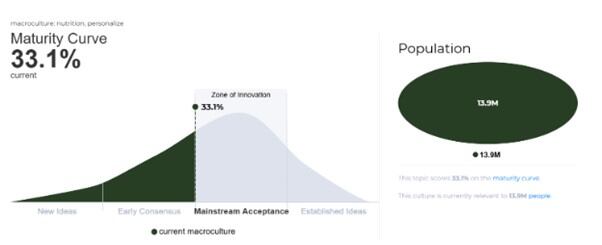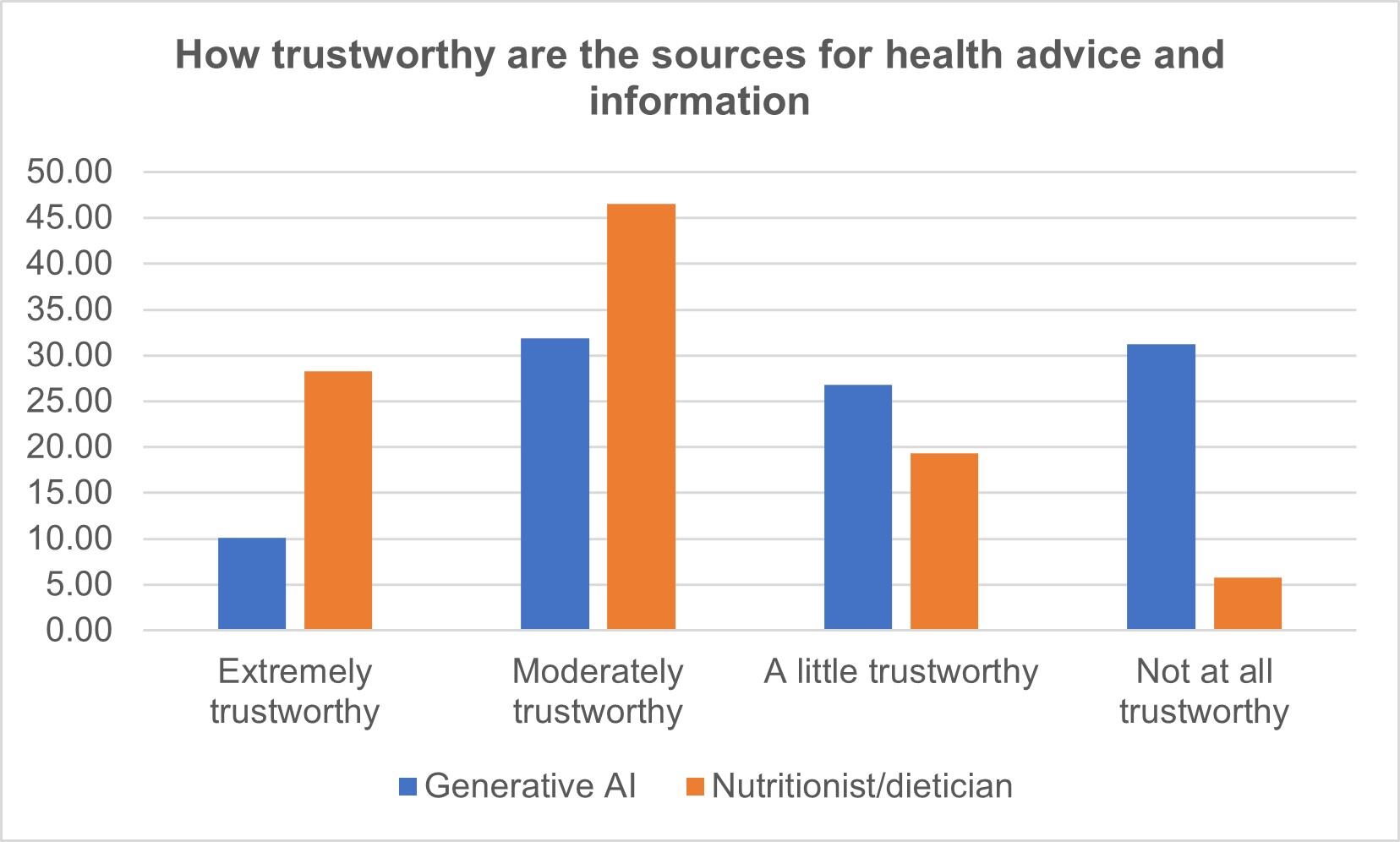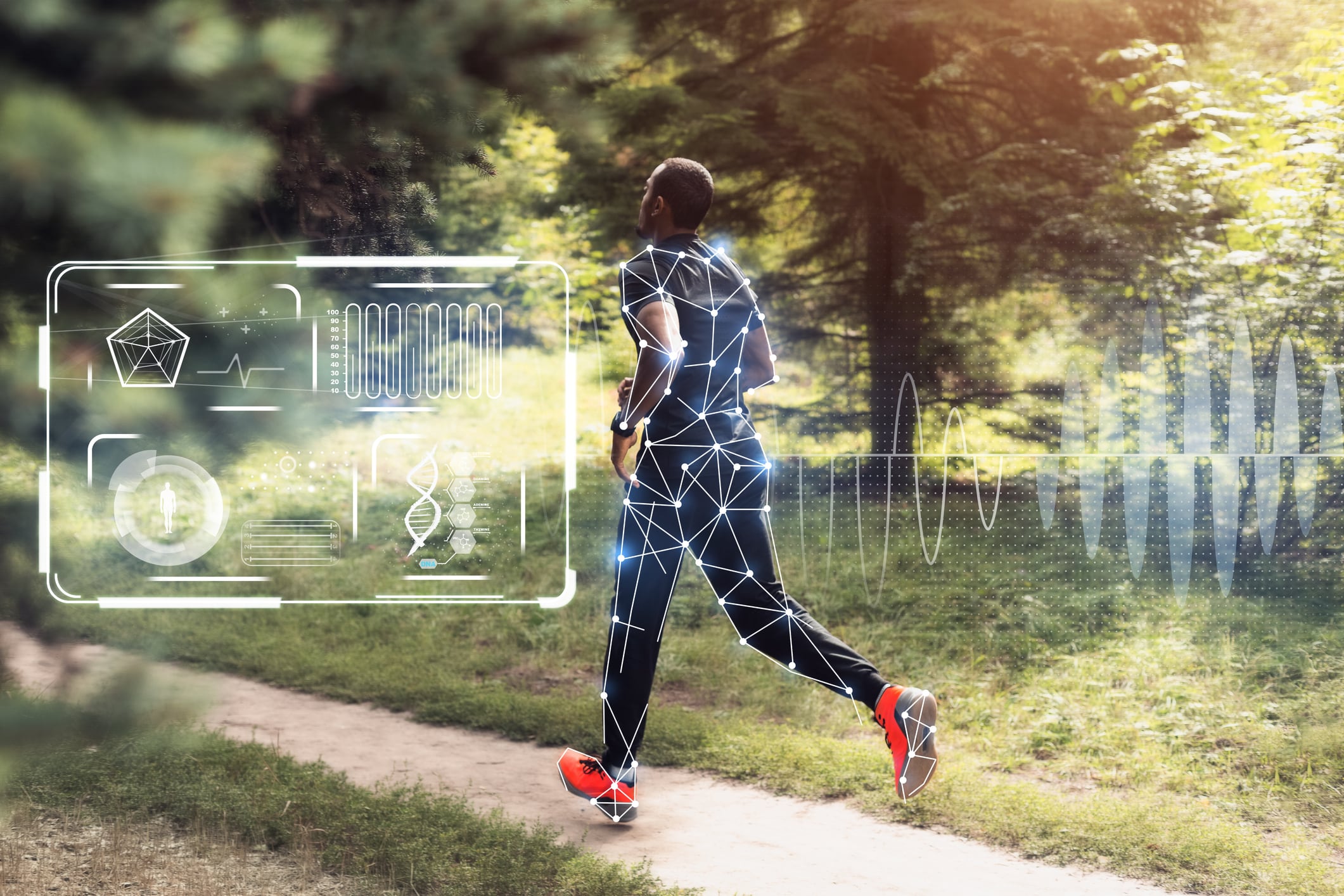Personalized nutrition is moving into the ‘zone of innovation’ in the UK —the ideal stage for launching new solutions, according to Lux Research.
Combining insights from cultural anthropologists and advanced AI to decode the deeper cultural meanings behind consumer behavior, Lux Research analyzes millions of natural consumer conversations to reveal what truly matters to people, and why.
”The idea of personalized nutrition is culturally active in the UK and currently resonates with approximately 13.9 million consumers aged 18 to 74," Cheryl Auger, senior research director at Lux Research, told NutraIngredients
“This idea has just entered the mainstream in terms of cultural maturity... It is gaining traction and evolving as new ideas and technologies shape the landscape.”
The ‘Lux Maturity Curve’ suggests the market is at the beginning of mainstream acceptance, making it an ideal time for innovation.

Technology and environment drive consumer decisions
Lux data indicates that curiosity about new technology and health tracking is a key driver of interest in personalized nutrition, driven by a desire for precision, accountability and control.
Another strong motivator is growing awareness of environmentally responsible food choices and a preference to align personal health goals with broader environmental values.
This means consumers are “navigating a difficult balance between solutions that meet their individual health needs and approaches that align with ethical and environmental considerations,” Auger said.
“An important cultural tension emerges here: The desire for personalized health optimization can conflict with the complexity of maintaining sustainable and eco-friendly practices.”
Based on these insights, she suggests three key business opportunities: tech integration, sustainability messaging and customized wellness programs.
She explained brands can build or enhance digital platforms that provide personalized dietary recommendations and emphasize how personalized nutrition solutions can align with eco-conscious values.
They can also offer personalized dietary and wellness solutions that empower consumers to tailor their routines, enhancing a sense of agency and alignment with individual goals, she suggested.
As this remains a novel market for mainstream consumers, Auger emphasized the importance of consumer education.
“The culture is still developing, and consumer education remains essential,” she said.
“Brands will need to help consumers understand what personalized nutrition is and how it can support their well-being. Engaging content—such as blogs, webinars and social media—can play a critical role in building awareness and fostering a sense of community around this evolving concept.”
Health tracking across the globe
Global data from Euromonitor International reveals fitness tracking apps, particularly those integrated with wearable devices, are currently the most widely used among health-related digital tools, outperforming other categories such as food and sleep tracking.
“This reflects a growing global interest in real-time, data-driven health monitoring,” Aishwarya Rajpara, consultant at Health and Beauty, told NI.
However, regional differences in engagement are evident. Europe, for example, shows consistently lower-than-average usage in wellness-focused apps like guided meditation and diet tracking, “suggesting a more cautious approach to adopting digital health technologies”, she added.
“Despite this, comfort levels with health apps, especially those offering personalized nutrition are remarkably high across all regions, with over 89% of consumers worldwide expressing confidence. This marks a clear global shift toward individualised, tech-enabled wellness.”
Trust and transparency key in Europe
In Europe, 91% of the respondents reported being comfortable with personalized nutrition apps, yet their slower adoption has been shaped by a trust-based mindset influenced by strict data privacy regulations (such as GDPR), a preference for scientifically validated solutions, and a cultural emphasis on transparency.

Latin America and the Middle East and Africa show even higher comfort levels (96%), driven by rapid urbanization, mobile-first infrastructure, limited access to traditional healthcare and a young, tech-savvy population that embraces accessible, app-based wellness solutions, according to the data insights.
Ultimately, European users stand out in their preference for human-delivered, expert-backed health advice.
“They are more likely to trust recommendations from healthcare professionals than those generated solely by AI, favoring digital tools that support—not replace—human expertise," Rajpara said.
“This underscores the importance of designing health apps that integrate personalization with credibility, especially in markets where trust and transparency are paramount.”
Speaking recently with NI, personalized nutrition industry consultant Mariette Abrahams advised that personalized nutrition companies need to develop the human element of their businesses in order to compete and ensure customer retention.
“It’s the human element in combination with the AI that will help people with adherence and engagement and create better longitudinal data to be able to innovate,” she said.




